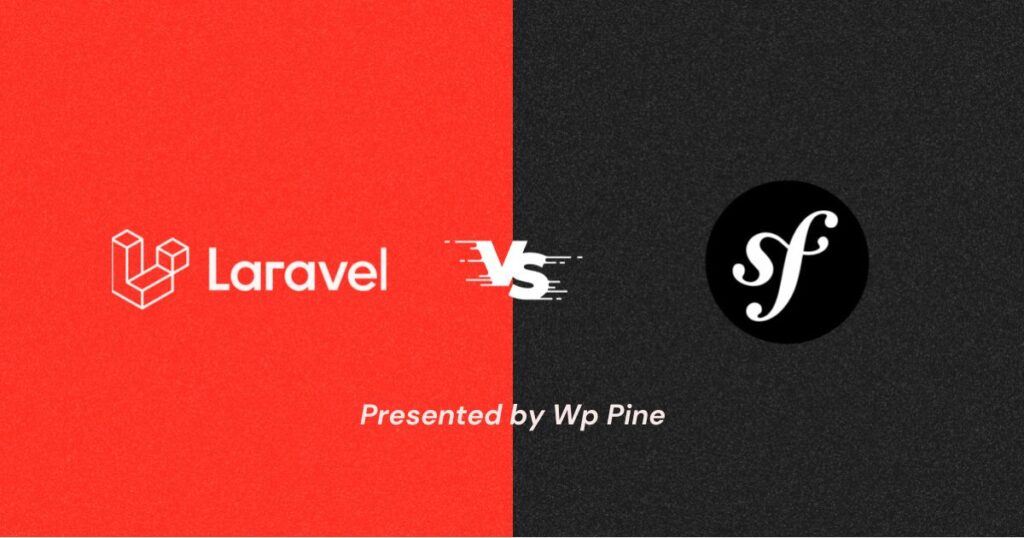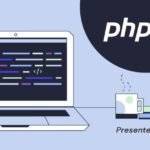PHP framework is a solid foundation of the contemporary and efficient web applications. While Laravel is one of the most popular and modern PHP frameworks projects, The other one PHP framework is Symfony which is another incredibly effective tool for developers. This relative comparison of PHP frameworks will focus on the features such as structure, functionality, community support and applicability of projects of both these frameworks so that you can make the right selection for your next web development project.
Introduction to Laravel and Symfony
Laravel
- Overview: Being adopted in 2011 by Taylor Otwell, Laravel has changed the PHP development and remain popular among developers due to the expressive syntax it provides. This supports RAD and has many features, which has a clean and model-view-controller architecture.
- Key Features: Laravel has several built-in features of Eloquent ORM to interact with the database, blade templating for structured front end rendering, artise CLI for time saving for repetitive tasks, Laravel Mix for easy assets compilation.
- Community and Ecosystem: Laravel boasts a vibrant community with extensive documentation, Laracasts for video tutorials, Laravel Forge for server management, and Envoyer for continuous deployment. The ecosystem thrives on Composer for package management, supporting a wide range of extensions and integrations.
Symfony
- Overview: Symfony, launched in 2005 by SensioLabs, is renowned for its stability, flexibility, and modularity. It provides a robust foundation for complex web applications and serves as the basis for other frameworks and content management systems.
- Key Features: Symfony’s core features include Symfony Components, reusable PHP libraries that power Symfony applications. Components like HTTP Kernel, Event Dispatcher, and Routing enable developers to build scalable applications with granular control over functionality.
- Community and Ecosystem: Symfony enjoys strong community support with enterprise-level backing from SensioLabs. It offers comprehensive documentation, SymfonyCasts for learning resources, Symfony Flex for managing bundles, and SymfonyCloud for scalable hosting and deployment solutions.
PHP Frameworks – Comparison of Key Features
Architecture and Flexibility:
- Laravel: Embraces the MVC pattern out-of-the-box, providing structure and separation of concerns for developers. Laravel’s opinionated approach simplifies common tasks with conventions while offering flexibility through artisan commands and middleware.
- Symfony: Offers flexibility with both MVC and microkernel architectures. Developers can use Symfony Components independently or as part of a full-stack framework, tailoring applications to specific requirements. Symfony’s decoupled nature supports modular development and integration with third-party libraries.
Learning Curve and Documentation:
- Laravel: Known for its intuitive syntax and shallow learning curve, Laravel appeals to developers of all levels. The framework’s extensive documentation and Laracasts provide practical examples and tutorials, accelerating the learning process.
- Symfony: Has a steeper learning curve due to its configurability and component-based architecture. However, Symfony provides comprehensive documentation, SymfonyCasts for structured learning paths, and Symfony Flex for managing configurations, easing the adoption of advanced Symfony features.
Performance and Scalability:
- Laravel: Optimized for rapid development and prototyping, Laravel excels in small to medium-sized applications. It leverages caching mechanisms, lazy loading, and queueing systems to enhance performance and scalability for growing projects.
- Symfony: Recognized for its performance optimization and scalability, Symfony is designed for enterprise-level applications and high-traffic websites. Symfony’s bytecode caching (e.g., OPCache), HTTP caching strategies, and profiler tools support efficient resource management and application scaling.
Community and Support:
- Laravel: Benefits from a large and active community, contributing to package development, forums, and community-driven support channels. Laravel Forge and Envoyer streamline server management and deployment workflows, enhancing developer productivity and project sustainability.
- Symfony: Supported by a dedicated community and enterprise-level support from SensioLabs, Symfony offers professional services, long-term support (LTS) releases, and SymfonyCloud for cloud-based hosting. The ecosystem supports complex enterprise needs with tools for performance monitoring, security updates, and enterprise integration.
Additional Considerations For PHP Frameworks
Development Tools and Ecosystem:
- Laravel: Includes artisan CLI for generating code, managing migrations, and interacting with the application. Laravel Mix simplifies asset compilation and preprocessing for JavaScript and CSS.
- Symfony: Offers robust development tools like Symfony Console for CLI commands, Symfony Profiler for performance monitoring, and Symfony Panther for end-to-end testing. Symfony Flex automates bundle management and configuration, streamlining project setup and maintenance.
Security Features and Best Practices:
- Laravel: Integrates security features like CSRF protection, encrypted cookies, and secure password hashing with bcrypt. Laravel’s built-in middleware and authentication scaffolding enhance application security out-of-the-box.
- Symfony: Implements security best practices with firewall configurations, access control lists (ACLs), and user authentication mechanisms. Symfony’s security component provides tools for encrypting data, handling user permissions, and mitigating common web vulnerabilities.
Use Cases and Project Suitability of PHP Frameworks
Laravel
- Ideal For: Yug. Startups and small and midsized projects with a focus on fast development, contemporary features (Restful, streaming, etc.), strong ecosystem as for the communities support and package managers.
- Use Cases: Laravel is amazing while Creating complex web applications like Content Management System, e-Commerce Solution, Software as Service Solution, Applications that needs rapid build and many more.
Symfony
- Ideal For: It is suitable for applications within an enterprise, large-scale project applications where there is rigid business logic, and high inbound/outbound traffic applications that demand customization, scalability, and high-performance features.
- Use Cases: As a result, Symfony is good for the creation of the enterprise resource planning (ERP) systems, customer relationship management (CRM) applications, and applications that require interaction with the legacy systems or external API interfaces. Due to Symfony’s modular design and comprehensive enterprise-like support, it is suitable for production and large-scale applications and projects.
Conclusion
Hence the distinction between PHP frameworks will have to depend on the specific project needs, the competency of a particular development crew, scalability in the future, and the general goals of the specific business. Laravel performs a very efficient and fast development, simplicity, and compatibility with modern frontend technologies that are essential for any startup or for projects with high time-to-market. Thus, I can conclude that Symfony is suitable for complex enterprise applications as it has solid architecture, flexibility, and scalability, and needs for extended customization, performance tuning, and long-term maintenance.
Consider the scope of your project, the level of performance expected, how much time is allowed for learning curves, and the preference level desired for community support to assist in the determination as to which route—Laravel or Symfony—better aligns with your application goals. In any case, you are going to get powerful tools with a great amount of documentation and active communities to help you in efficient PHP framework development, tailored to your needs.
Additional Resources:
For further reading on PHP frameworks best practices and tools, consider exploring the following resources:
- Detailed information on PHP frameworks, Laravel Documentation, and Symfony Documentation.
- PHP Fundamentals – by Wppine
- Modern PHP 8 – by Wppine
- Building Dynamic Website – by Wppine



